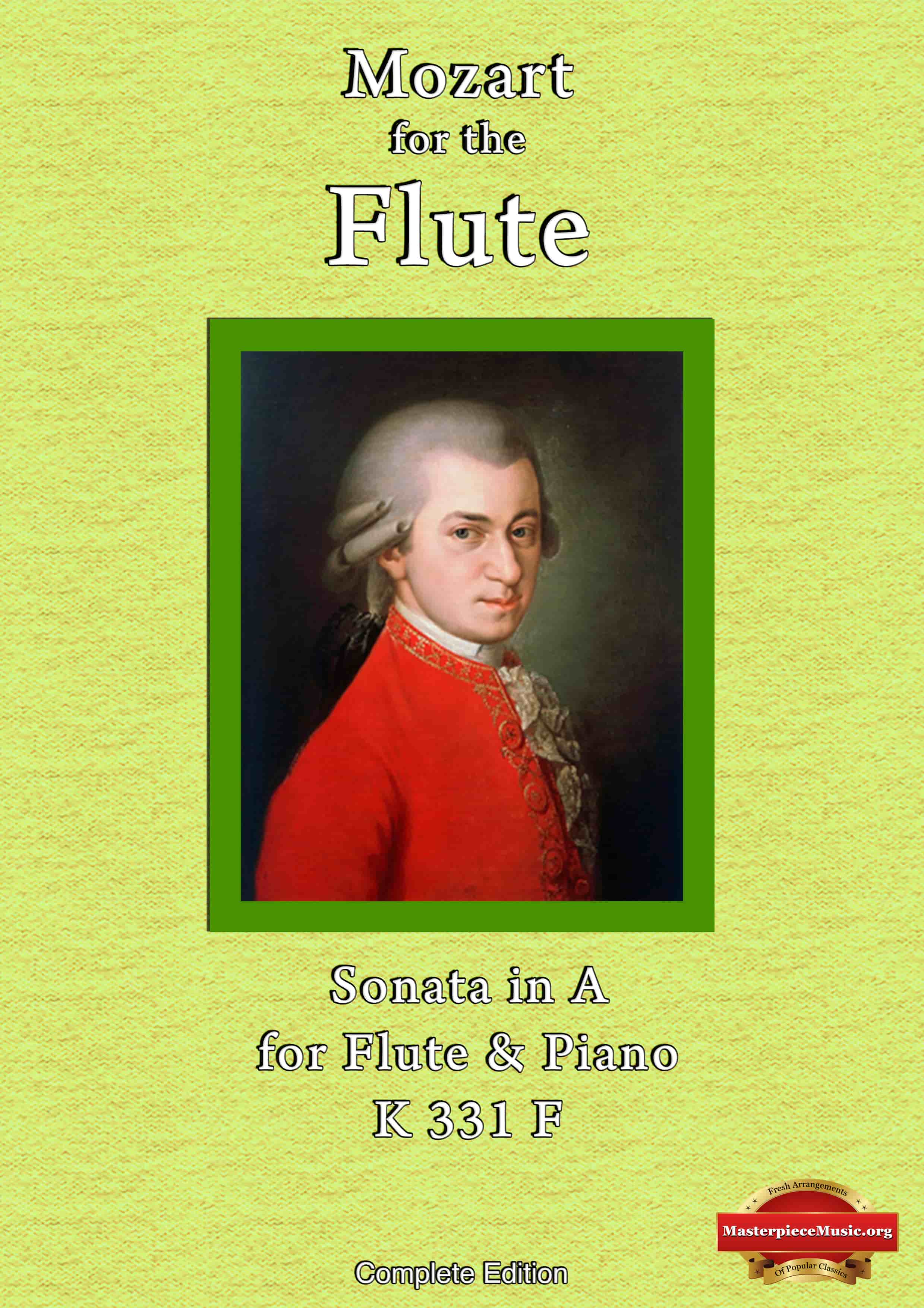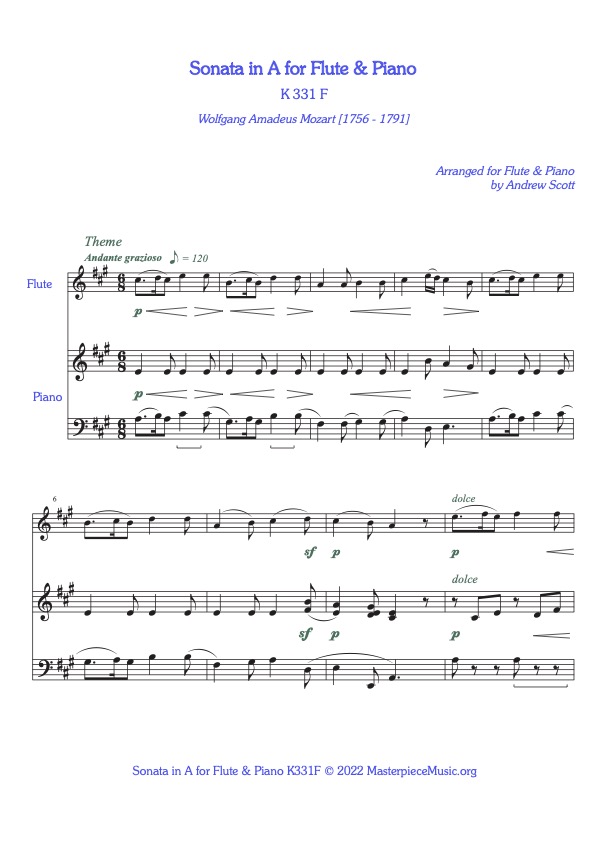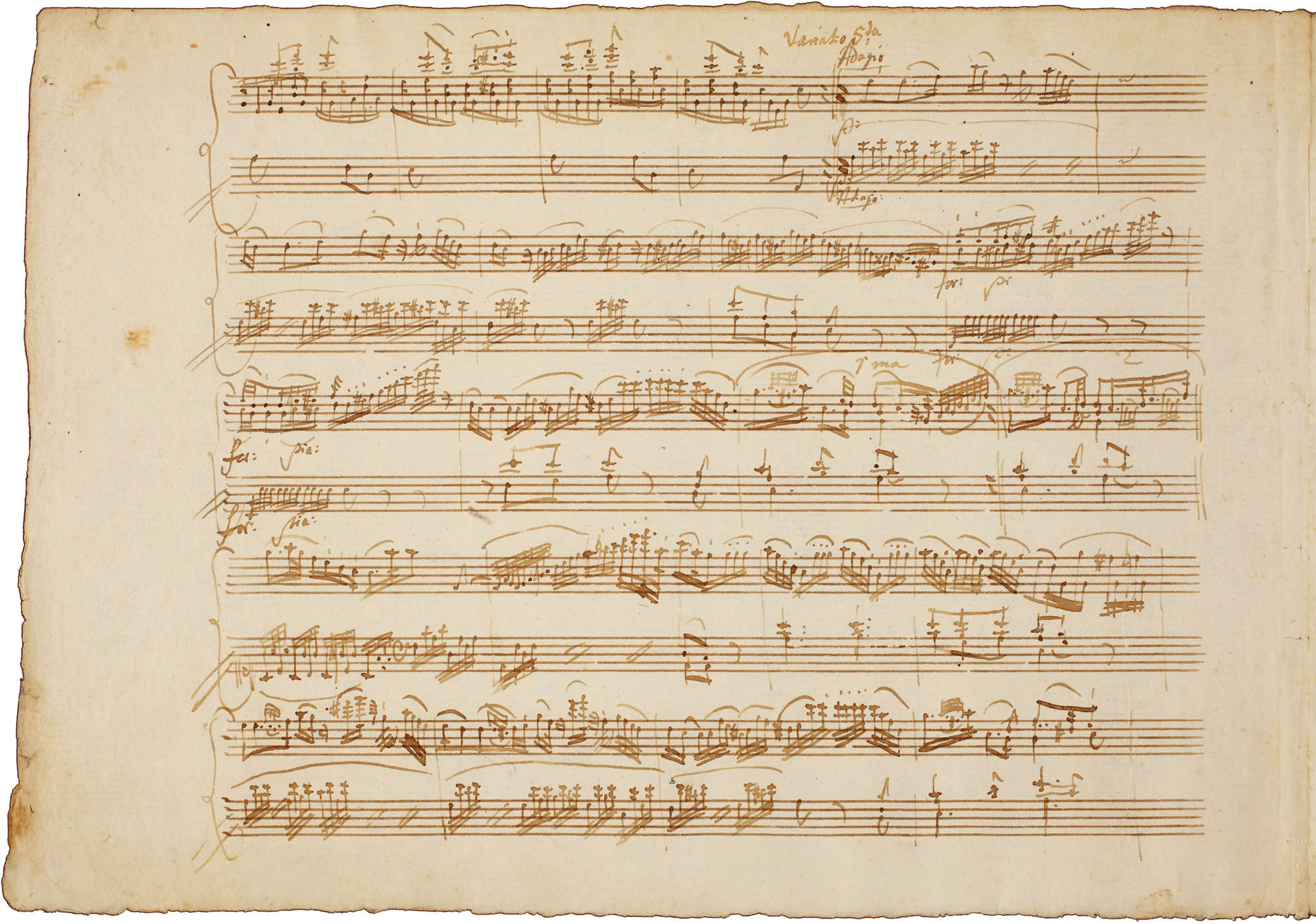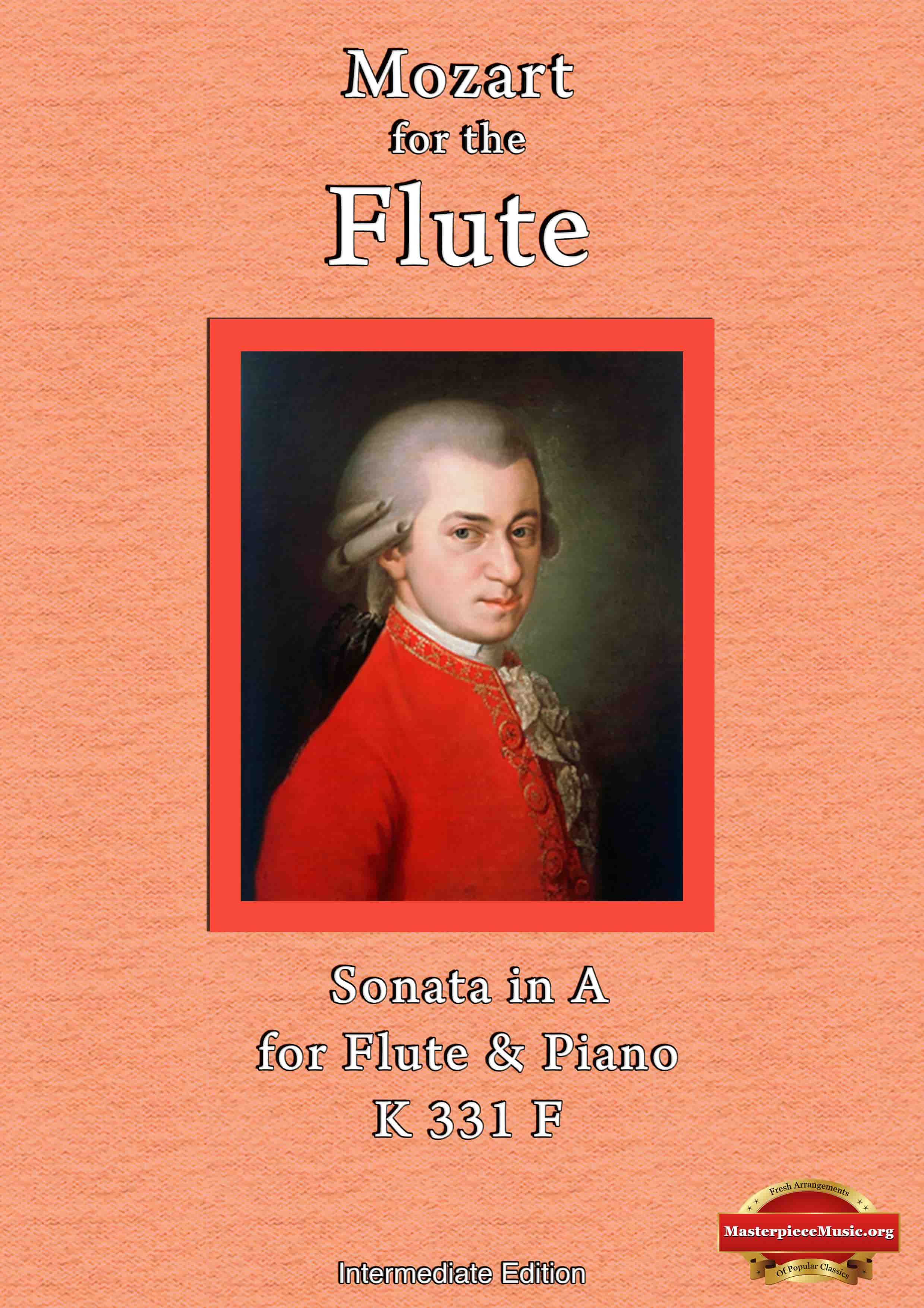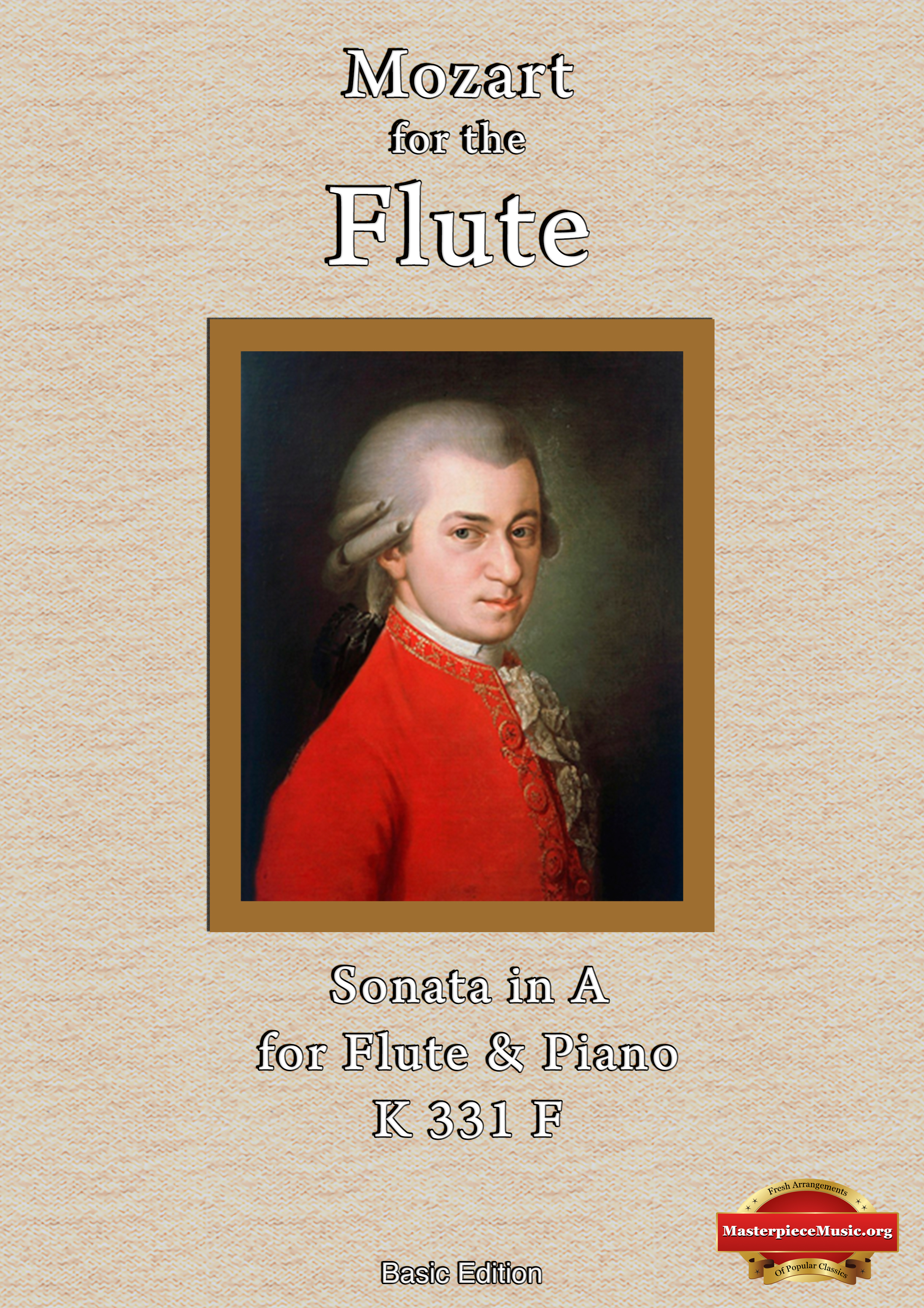Do you ever wish that
Mozart had composed
more music for the flute?
Wish granted!
Sonata in A for Flute & Piano
K 331 F
Sheet Music – Complete Edition
Click on the play button to hear

the complete sonata.
Click to enlarge.
A True Masterpiece
Wolfgang Mozart composed his A major piano sonata, known as K331, in 1783.
The opening bars contain one of the most satisfyingly simple melodies that Mozart ever composed. They instantly invoke a feeling of serenity, which is maintained and augmented throughout the piece by a sense of wonder at the brilliantly beguiling variations of the main theme.
Its construction and sound are so exquisitely crafted that they evoke a sense of natural fluidity, akin to a flowing mountain spring.
The beauty of this composition is so profound that it transcends the boundaries of time, possessing a timeless allure.
It features a famous and easily recognizable tune called the Rondo alla Turca, or Turkish March, as its finale.
Arranged for Flute & Piano
In order to make the beauty of Mozart’s music accessible for flute players and their audiences, we’ve expanded this composition by arranging it for flute and piano.
The flute has about 80% of the melody; the piano provides rhythm and harmonic accompaniment all the way through, with the melody given to it about 20% of the time.
90 Pages
There are a total of 90 pages in this edition – the flute part is 19 pages, the piano part is 28 pages, the score is 43 pages.
This complete version contains all 373 bars of the original composition, in the same key.
The playing time is a little over 20 minutes.
The flute has about 80% of the melody; the piano provides rhythm and harmonic accompaniment all the way through, with the melody given to it about 20% of the time.
What you get:
1. Three separate parts of the complete edition as a PDF download – one part each for the flute and piano, and a third containing the score (both instruments on the page. This can be useful if either the flutist or the pianist needs to see what the other is doing);
2. A recording of the whole piece so you can hear how it should sound;
3. A backing track with just the piano, at full tempo, so you can practise at home;
Click the button to hear
the piano backing.
4. A backing track at 80% tempo, so you can practise the more difficult passages at a slower speed;
5. A backing track at 65% tempo, so you can practise the really difficult passages at a slower speed, for example bars 110-120.
Spot the mistake.
You won’t, because there aren’t any!
Mozart originally notated the Sonata in A major on nine pages of music paper, probably using a goose feather quill pen dipped in ink.
This single page contains more than 1,000 markings.
Note the absence of crossings out, erasures or rewritings.
He was able to compose whole pieces mentally, BEFORE he committed a note to paper.
Click to enlarge.
Mozart composed the initial eight pages of the manuscript using two pairs of leaves, known as bifolios, which were placed inside each other.
The left-hand leaf of the first bifolio contained the first two pages of the sonata, followed by the nested second bifolio that included pages 3 to 6.
Lastly, the right-hand leaf of the first bifolio held pages 7 and 8 on its two sides.
It is evident that Mozart ran out of space, so he wrote the final measures of the finale on an additional leaf, which was now situated in Salzburg.
Could you write 1,000 marks on a page without a single error?
Too much to pay, even for a masterpiece?
The Intermediate Edition has piano accompaniment
up to bar 54, at a much lower price.
Don’t want to pay anything?
The Basic Edition contains the main theme
for the flute only, up to bar 36, free.
